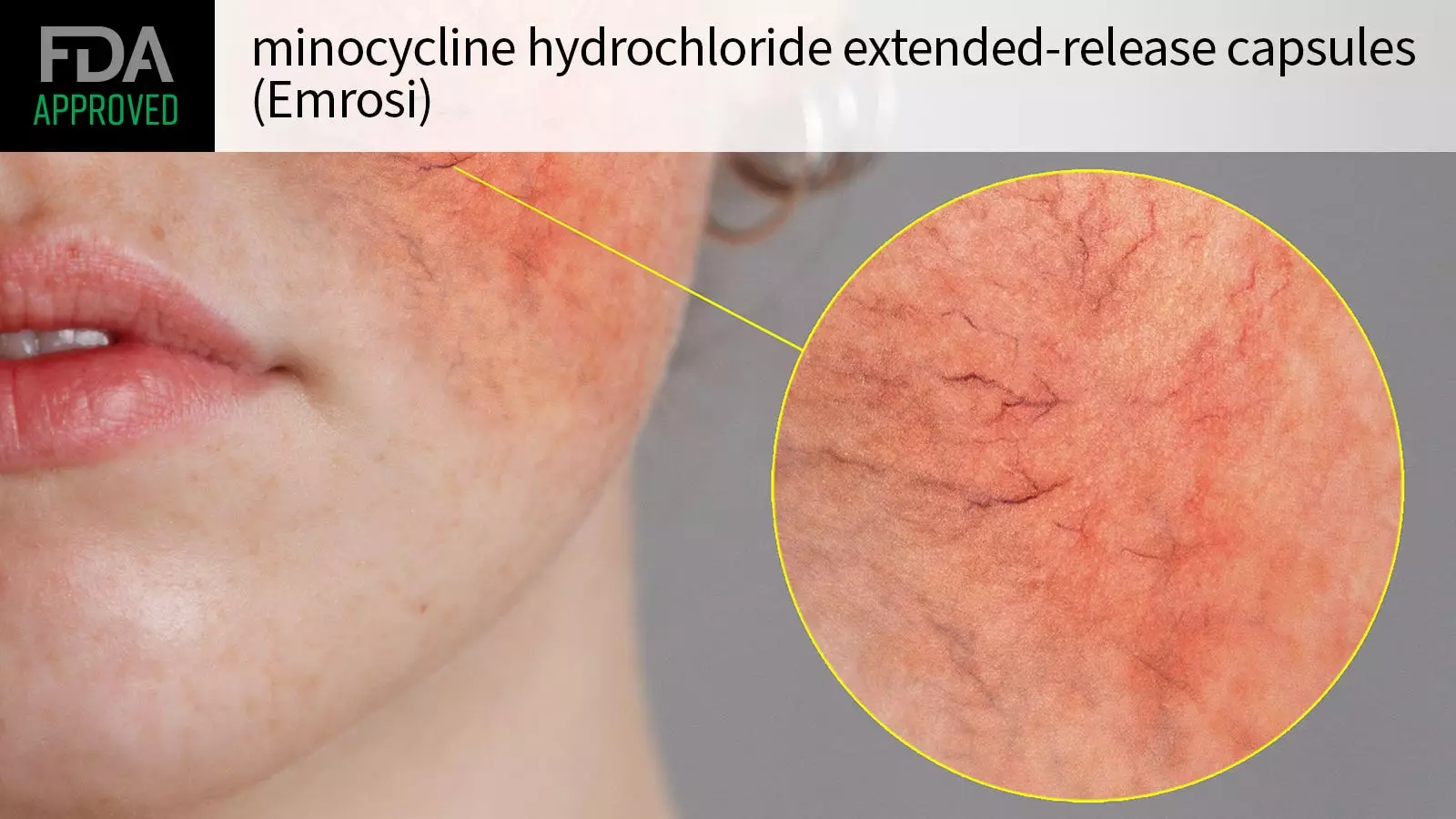Journey Medical has recently announced that the FDA has granted approval for minocycline hydrochloride extended-release capsules, marketed under the name Emrosi, for the treatment of inflammatory lesions associated with rosacea in adult patients. This marks a significant advancement in dermatological care, given the persistent challenges faced with existing therapies for this chronic skin condition.
The approval of minocycline hydrochloride was largely influenced by the comprehensive data obtained from two multicenter phase III clinical trials, identified as MVOR-1 and MVOR-2. Together, these studies encompassed a total of 653 adults diagnosed with papulopustular rosacea. Patients were randomly assigned to one of three treatment groups: a daily dosage of 40 mg of minocycline hydrochloride, doxycycline (the traditional treatment option), or a placebo. Over a span of 16 weeks, the effectiveness of these treatments was meticulously evaluated.
At the outset, patients presented with an average of 25 inflammatory lesions, classified as either papules or pustules, alongside an Investigator’s Global Assessment (IGA) score ranging between 3 and 4. The results after the 16-week treatment period were compelling; a notable percentage of participants in the minocycline group achieved a treatment success, defined as an IGA score of 0-1, representing clear or nearly clear skin with a minimum two-grade decrease from the baseline. Specifically, MVOR-1 recorded success rates of 65% for minocycline, compared to 46% for doxycycline and 31% for placebo. Similarly, MVOR-2 reflected 60% success with minocycline against 31% and 27% for the other two treatments, respectively.
While the efficacy results were impressive, safety is a critical aspect of any new medication. The trials indicated that the most frequently reported adverse event was dyspepsia, affecting 2% of participants receiving minocycline, with none in the placebo group reporting such symptoms. Furthermore, there are significant considerations regarding the contraindications and warnings associated with this antibiotic. Notably, individuals with a known hypersensitivity to tetracyclines should avoid this medication.
Moreover, the prescribing guidelines for minocycline hydrochloride detail the potential risks of severe reactions, including anaphylaxis, serious skin conditions, and the risk of developing drug-resistant bacteria. There are also critical warnings concerning its use during pregnancy and lactation due to concerns about permanent teeth discoloration in children and potential inhibition of bone growth.
The launch of minocycline hydrochloride is expected to occur in the first half of 2025, and its approval may reshape the therapeutic landscape for rosacea. Patients and healthcare professionals now have a new, more effective option to consider, which could lead to improved patient outcomes and satisfaction.
As this medication becomes available, ongoing education about its safe use and monitoring for adverse effects will be crucial to mitigate risks while maximizing therapeutic benefits. Continued research and post-marketing surveillance will also be essential to ensure the long-term safety and efficacy of this new treatment in diverse patient populations. In light of the challenges posed by rosacea, minocycline hydrochloride represents a promising addition to the arsenal of dermatological treatments.

Leave a Reply